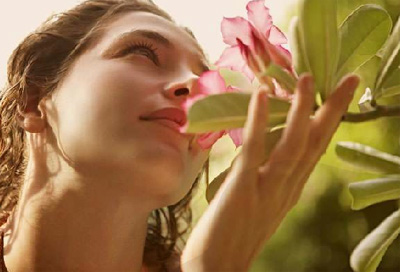Beauty without the bite

Beauty without the bite
How much do you know about the chemicals in the products that you use on your face, skin, hair, teeth and nails? Doing the research for this piece has brought me to looking into the beauty industry as a whole and the way that cheaper chemicals are used to make the products that we are told are the latest in skin technology, hair removal, hair repair, make up and even suncream. On the surface these products work, but it seems illogical that we are using chemicals on our faces, our bodies and our hair that are also used in detergents or processed food. Our bodies are living organisms, in the same way that harsh chemicals and non-recyclable products poison the planet, our bodies become badly affected physically and mentally if we are slavering on various creams in the bid to achieve the body beautiful.Coupled with the pressure for all individuals to make good by the planet, we also have to think of our own bodies and decide what's worth it- cheap products from the supermarket where you have no idea what is actually in them or certified organic products their contents explained, which may be a bit more expensive. According to the website Well Woman the damage we are doing to our bodies on a daily basis comes in the form of headaches, dizziness, nausea and even depression, caused by the use of Alcohol in products. In products such as hair care, cosmetics, aftershave, deodorants, mouthwash and toothpaste the chemical Propylene Glycol (PG) is found, which is also an active ingredient in antifreeze. It can be so harmful that people working with it have to wear protective clothing. The reason why your shampoo foams is because it contains a chemical called Sodium Lauryl Sulphate or Sodium Laureth (SLS), this chemical is also in clothing detergents. Mineral Oils put a film like barrier over your skin, stopping it from breathing, stopping the skin from detoxing itself, which can also quicken up the ageing process.
The chemical Stearalkonium Chloride used in many beauty products can cause allergic reactions, and is a central chemical in fabric softeners. This is just a chunk of examples taken from the research for this piece, there are hundreds of chemicals in all of our products that we are still buying into, because its cheap, easy and images of perfect skin, perfect hair and perfect smiles are everywhere to be seen; yet what the film stars and the models don't tell you is that they use organic products too. It is their job to look perfect; they have full access to brilliant products that are not poisoning their bodies or the planet.
The big conglomerates unwilling to work with organic produce are able to continue churning out these products containing damaging chemicals, because fundamentally it is business. If people are still buying from the business it becomes an issue of the power of the consumer. Paul Deighton, Merchandising Manager at New Internationalist Magazine Australia makes it clear that there are two sides to where the buck stops: "as a consumer, it is you who has to make the choice" and on the other side "the marketers need to provide more transparent information on their products, and the conditions in which they are made to the consumer". If the marketers are not making what is in your products transparent, their effects and how and where they are made how can you make the right choice? If consumers are not putting their money into organic products or demanding transparency marketers will continue to remain unclear.
The other side to the organic debate is of Fair Trade. A product might boast it has all the natural power of Green Tea, Mango, Papaya and coconut, but what farms have those 'natural' ingredients come from? By buying certified organic products you will be closer to ensuring that the ingredients have come from producers who are paid a fair price for their products. Deighton advocates the African Pacific Company local to the Pacific Islands who produces the New Internationalist the Nui range. He states that though the company is not a registered Fair Trade organisation, they work closely with Fair Trade principles.
It is hard to know where to start with organic beauty products. There are a few organic beauty shops around Australia such as Vitale Naturale Skin Care in Brisbane; The Orient Day Spa in Sydney: Cherry Blossoms Organic Beauty in Siabaco, Westerrn Australia and The EverEscents Hair Salons across Australia.
Do your research online and make sure you find a reputable company that stock products clearly explained and relevant to your skin and hair. Organic products may be more expensive than those from your local chemist, but are designed to last longer with optimum health benefits and with little damage to mother nature. Buying into the right products for you and the world supports more than the notion of a sustainable world, if you aren't sure how that fits into your world to begin with. Deighton assures that the profits from the Nui range go back into funding the expanding the reach of the New Internationalist Magazine and back into extending the work New Internationalist does with Fair Trade organisations worldwide.
To understand what's in your products go to http://www.well-women.com/chemicals.html
To find out more about the New Internationalists work with the social and environmental justice magazine, Fair Trade and organic beauty products visit: http://www.newint.com.au/shop/
To discover the Nui range of organic beauty products from hand wash to coconut oil visit www.nuicoconut.com/fair_trade
Jemilla Russell-Clough
MORE
Copyright © 2001 - Female.com.au, a Trillion.com Company - All rights reserved. 6-8 East Concourse, Beaumaris, Vic 3193, Australia.



